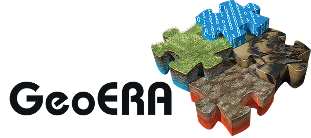Essen, November 27 – 29
From November 27 to 28, the MUSE team organized the first partner workshop
in Essen, Germany. The workshop was linked to the German Geothermal
Congress (DGK), which represents one of the largest annual scientific
geothermal event in central Europe.
| The partner workshop 2018
Although MUSE already started in July 2018, the partners The partner workshop 2018 focused on the activities to be On the second day, the workshop was addressing on the |

The knowledge and the different views inside the MUSE team The MUSE team will meet the next time in Cardiff (UK) in |

|
The Knowledge Exchange Workshop on environmental impact monitoring of shallow geothermal use MUSE co-organized the workshop together with the Interreg projects GRETA and GeoPLASMA-CE, both dealing with shallow geothermal energy use. In two sessions, 10 presentations covered various aspects of environmental monitoring of closed loop and open loop systems. Emphasis was put on the monitoring of urban groundwater monitoring and the role of monitoring to validate subsurface models as well as to support planning and management of shallow geothermal energy use. The presentations given covered case studies in more than six countries. In the panel discussion rounds, more than 40 participants of the workshop were exchanging ideas how to make monitoring affordable and easy to apply for both, operators as well as authorities. In this context, the Technical University of Munich presented an approach for a low cost and real time monitoring of the groundwater body below Munich based on sensors connected via the Internet of Things (IoT). The presentations given at our workshop will soon be |

Group phot of the MUSE team during the partner workshop in Essen,
November 27 – 28, © G. Goetzl.
